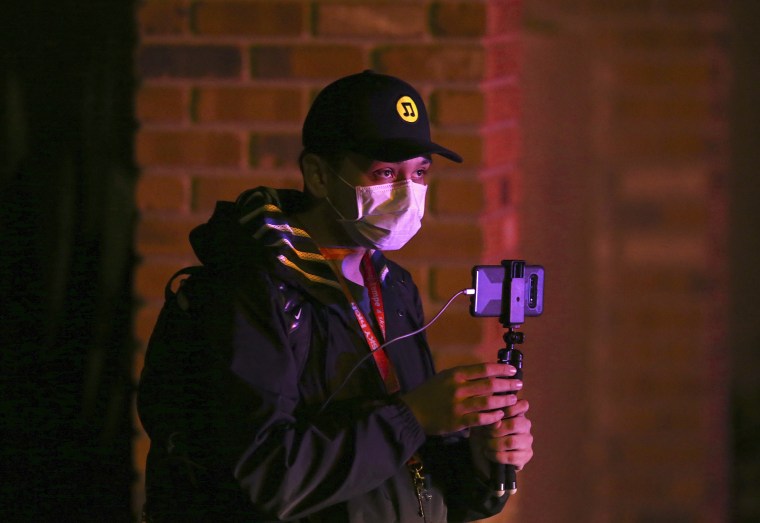A bill signed into law in Arizona Wednesday will make it illegal to take videos of police within 8 feet of law enforcement activity.
The law, which will go into effect in September, was sponsored by state Rep. John Kavanagh and signed by Gov. Doug Ducey, both Republicans.
"It is unlawful for a person to knowingly make a video recording of law enforcement activity if the person making the video recording is within eight feet of where the person knows or reasonably should know that law enforcement activity is occurring," the law states.
A person recording police within 8 feet can face a misdemeanor charge, after they are warned once to back up.
The law applies to situations in which a police officer is questioning a suspicious person, conducting an arrest, issuing a summons or enforcing the law and handling an emotionally disturbed person who is exhibiting abnormal behavior, the law says.

It makes exceptions for police activity on private property, in which the person who is recording is authorized to be on the property, but specified that an officer can order the person recording to leave the area if the "law enforcement officer determines that the person is interfering in the law enforcement activity."
The law also says that a person who is the subject of police activity can record as long as they're not being handcuffed, searched or subjected to a field sobriety test.
And people in a vehicle that has been stopped by police can record "if the occupants are not interfering with lawful police actions," the law says.
The National Press Photographers Association, in February, wrote a letter denouncing the bill, saying it was unconstitutional. At the time, the bill proposed people couldn't take videos of police from 15 feet away or less.
"We are extremely concerned that this language violates not only the free speech and press clauses of the First Amendment, but also runs counter to the “clearly established right” to photograph and record police officers performing their official duties in a public place," said the letter, signed by The Associated Press, The New York Times Company and other organizations.
"We believe that requiring the "permission of a law enforcement officer" and setting a minimum distance of fifteen feet in between the law enforcement officer and the person recording, would not survive a constitutional challenge and is completely unworkable in situations (such a demonstrations and protests) where there are multiple officers and people recording," the letter said.
In a March op-ed, Kavanagh wrote that he had made concessions on the bill, lowering the buffer zone and adding the exceptions.
He said he introduced the bill for safety reasons. "Getting very close to police officers in tense situations is a dangerous practice that can end in tragedy," Kavanagh wrote.
He also said he believes the law won't affect the integrity of recordings taken of police. "A video taken from 8 feet away probably takes in the entire scene, providing more information and greater context," he wrote.
Videos of interactions with law enforcement have become an increasingly useful tool in exposing police misconduct.
